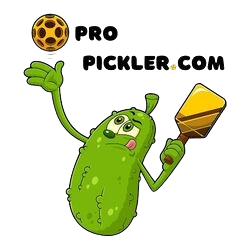Properly cleaning your pickleball shoes is essential for maintaining their condition and extending their lifespan. Follow these steps for effective cleaning:
Preparation:
- Remove Loose Dirt:
- Knock the soles together outdoors to dislodge any loose dirt or gravel.
- Use a soft-bristled brush (like an old toothbrush) to brush away remaining dirt from the surface, especially around the outsoles.
- Remove Laces and Insoles:
- Laces: Take out the laces to prevent water from soaking them and to allow thorough cleaning of the tongue of the shoe.
- Insoles: Remove them if possible. Wash them separately if they’re particularly smelly or dirty.
Surface Cleaning:
- Mild Soap Solution:
- Mix a small amount of mild laundry detergent or dish soap in a bowl of warm water.
- Gentle Scrubbing:
- Dip a soft brush or cloth in the soapy water and gently scrub the outside of the shoes, focusing on areas with stains or marks.
Deep Clean for Stubborn Stains:
- Use Shoe Cleaner:
- For tougher stains, use a shoe cleaner designed for the specific material of your shoes (e.g., leather, synthetic, mesh).
- Apply the cleaner as directed, usually involving a bit more vigorous scrubbing.
Rinse:
- Wipe Down:
- Wipe the shoes with a damp cloth or sponge to remove any soap residue. Avoid soaking the shoes, as excessive water can damage some materials.
Drying:
- Air Dry:
- Place the shoes in an open area with good air circulation to dry.
- Stuff them with newspaper or a towel to absorb moisture and help them retain their shape.
- Avoid Heat:
- Do not place them near a heater or in direct sunlight, as high heat can warp or damage the shoe material.
Cleaning Laces:
- Wash Separately:
- Wash the laces in soapy water, rinse, and then let them air dry.
Reassemble:
- Put Back Together:
- Once everything is dry, reinsert the insoles and re-lace the shoes.
Regular Maintenance:
- Wipe After Each Use:
- Regularly wipe your shoes with a damp cloth after each use to prevent dirt build-up and make deep cleaning easier.
Best Way to Remove Dirt and Scuff Marks from Pickleball Shoes
For stubborn scuff marks, use a specialized shoe cleaner or a magic eraser. Recommended products include the Pansonite Instant Sole and Sneaker Cleaner and the KN FLAX Quick Sneaker Wipes. Test the cleaner on a small, inconspicuous area first to ensure it doesn’t damage the material. Gently rub the cloth over the shoes, focusing on dirty and scuffed areas. For tougher scuffs, use the soft-bristled brush to scrub gently.
Can You Put Pickleball Shoes in the Washing Machine?
It’s not recommended to put pickleball shoes in the washing machine. Most pickleball shoes are made with materials and adhesives that may not withstand the agitation and soaking involved in a machine wash. Instead, clean your shoes manually using a soft brush, mild soap, and water.
How to Deodorize Pickleball Shoes
Here are effective ways to eliminate odors from your pickleball shoes:
- Air Them Out:
- Place your shoes in a well-ventilated area after each use.
- Use Baking Soda:
- Sprinkle baking soda inside your shoes and leave it overnight. Shake out the excess before wearing them again.
- Essential Oils:
- Put a few drops of essential oils (like lavender or tea tree oil) on a piece of cloth or cotton ball and place them inside your shoes.
- Shoe Deodorizer Sprays:
- Use a shoe deodorizer spray, such as the Elite Sportz Shoe Deodorizer.
- Homemade Deodorizing Spray:
- Mix equal parts water and white vinegar in a spray bottle. Spray lightly inside the shoes and let them dry thoroughly.
- Charcoal Insoles or Inserts:
- Place charcoal insoles or odor-absorbing inserts in your shoes when not in use.
- Freeze the Shoes:
- For strong odors, place your shoes in a plastic bag and freeze them overnight to kill odor-causing bacteria.
Ensure your shoes are completely dry before using them again to prevent further odor issues and bacterial growth.
How Often Should You Clean Your Pickleball Shoes?
The frequency of cleaning depends on how often you play and the conditions of the courts:
- Regular Players (2-3 times a week): Basic cleaning once a week and a thorough cleaning every month.
- Occasional Players (Once a week or less): Thorough cleaning every 1-2 months, with a quick clean after each use.
- Playing Conditions: More frequent cleaning is needed if you play on dirty, dusty, or wet courts.
How to Store Your Pickleball Shoes
- Clean and Dry:
- Ensure your shoes are clean and dry before storing them. Moisture can lead to odor and deterioration.
- Use a Shoe Tree:
- Insert a shoe tree to maintain the shape of the shoes. If you don’t have a shoe tree, stuffing the shoes with newspaper can also help.
- Proper Storage:
- Store your shoes in a cool, dry place with good ventilation. Avoid damp, humid areas. Use a fabric shoe bag or their original box to protect them from dust.
How Long Do Pickleball Shoes Last?
- Frequent Players: Shoes may last about 6 months to 1 year.
- Occasional Players: Shoes can last from 1 to 2 years.
- Signs of Wear: Thinning tread on the sole, less supportive cushioning, or significant upper part damage indicate it’s time for new shoes.
How Often Should You Get New Pickleball Shoes?
- Frequent Players: Replace shoes approximately every 6 to 12 months.
- Recreational Players: Shoes won’t need replacement for more than a year.
- Discomfort and Wear: Replace shoes if you experience discomfort, pain, or less stability.
By following these guidelines, you can keep your pickleball shoes in top condition, ensuring they provide the necessary support and performance for your game.



